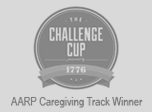4 Respite Care Tips for Family Caregivers
Caregiving can often be an incessantly demanding job on every level, requiring taxing hours of work and often much of our emotional attention. Many caregivers may lose the ability to properly take care of their own day-to-day needs as their time is split between their role as a caregiver and the other important roles in their life. Even the most rewarding instances of caregiving can become tiring after a while, and many caregivers can head straight for burnout if they go too long without being able to lead a balanced life for themselves.
Fortunately, a respite care plan is a concept that aims to prevent this sort of exhaustion-fueled burnout, and it can be achieved with some cooperation and coordination.
What Is Respite Care?
Respite care is when someone other than the primary caretaker pitches in to give them a little bit of a break. It can come in all sorts of forms, whether it be splitting caregiving fifty-fifty with a close family member, getting someone to just check in with them every night, or getting outside help from a caregiving company or organization. Respite care does not necessarily mean losing the caregiving role or handing it off to someone else -- instead, it's more of a tag-in system in which your needs as a caregiver are fulfilled, and those around you can help to offer some additional support.
Some common respite care examples can include having family or friends help you by checking in with your loved ones on days when you can't see them, or at night when you're tired out from a day of caregiving. It can also include contacting volunteers or professional services to have trained caregivers come in and take over for you however often you may need them to.
How To Create A Respite Care Plan:
Reach Out To Family
Your family may be able to provide you with some of the help you need to avoid caregiver burnout. Depending on the level of care needed for your loved one, relatives can help with tasks during the day or at night while you get some rest.
It may be difficult to get the support you need from your relatives, no matter how much they may desire to help. However, approach them with honesty about your needs, and encourage them to be honest, too, about their limitations and anxieties when it comes to caregiving. Many people are nervous to do it when they've never done it before, and creating a safe space for honesty might also save you some headaches that might have come from over-promising relatives who can't commit to the help they've offered.
Reach Out To Professionals
While family may be a great option in some instances, sometimes your family may not have the time, energy, or knowledge needed to be appropriate substitutes for a primary caregiver, and that is alright. In addition to professional medical caregivers, many charitable organizations and government organizations often have programs to assist caregivers in their community with taking care of their loved one. Some of these programs have free or no-cost options that can help to limit any financial obstacles that might keep families from seeking respite care.
Some great online respite care resources include:
ARCH National Respite Network: a nonprofit seeking to connect caregivers with resources for funding respite care through their state-specific guides.
National Association of Area Agencies on Aging: an online directory that offers caregivers the ability to search their area for local organizations designed to help families who are taking care of elders.
Veteran's Affairs and Legacy Corps: for veterans and families of veterans, both the VA and Legacy Corps seek to connect caregivers with free respite care. The VA provides respite care offerings in their care plans for retired veterans, and the Legacy Corps relies on help from volunteers to help caregivers in military families.
Caregiver grants, such as the ones offered by the Alzheimer's Association and the National Family Caregiver Support Program: many nonprofits and charities offer grants for caregivers to help them pay for respite care for the elderly. All that you have to do is determine if you're eligible and apply to be awarded a sum of money for respite care.
Caring for a loved one can be expensive, but affordable respite care options and payment options make some assistance in the home much more accessible and much easier. Many charitable organizations and foundations for aging understand the importance of getting caregivers some much-needed rest, as well as the importance of giving families of ill or elderly loved ones the option to receive in-home respite care and age in place. Respite care that is within reach can help to empower you and your loved ones.
Personalize Your Plan
Respite care is a system for taking care of a caregiver's individual needs, so it's important to figure out exactly what needs to be done while they are off the clock. Does their ill family member need attentive medical and emotional care? Or would the caregiver benefit from something else, like a helper to assist them with chores like making food, taking care of laundry, or cleaning? How often does someone need to lend a helping hand? Knowing exactly what you and your ill or elderly loved one need from a respite care plan can help you to achieve it.
Understand That Your Needs Are Perfectly Justified
Taking care of a loved one as the primary caregiver can be all-consuming in a way that can cause many caregivers to entirely shunt aside their own needs. Even worse, it can be tempting to feel guilt when those long-buried needs begin to bubble to the surface. Swapping out with another person for care may even feel like you're abandoning your loved one, or it may induce fear about the quality of care they're receiving while you're away.
While all of these feelings are entirely valid, it's important to know that it is vital to take breaks from caregiving every once in a while. Tending to another person's needs near-constantly without tending to your own can not only make you begin to falter and burn out, but it can even affect your caregiving or lead to resentment for your loved one. You're not a bad or negligent caregiver for needing someone else to lend a hand, you're a responsible one.
If you or a loved one needs support, visit SeniorHabitat to get connected to a comprehensive marketplace of services and benefits in your community. Click here to learn more.














